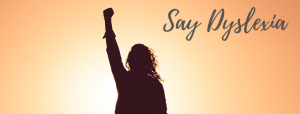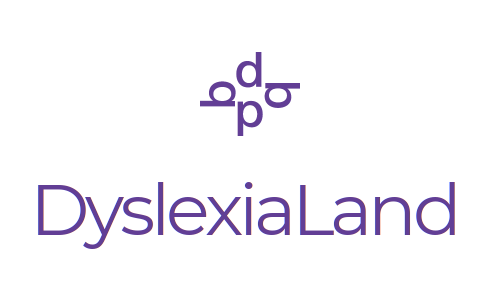Dyslexia: Say it Loud, Say it Proud
By Cheri Rae
A half-dozen years ago, when a few determined parents in New Jersey got together to address the needs of their children who were struggling in school they formed an informal group. Dedicated to educating, advocating and legislating, they didn’t call it Supporting Struggling Readers. They rightly called it Decoding Dyslexia, and they struck a nerve and sparked a grassroots movement that has taken hold in every state, and even beyond our nation’s boundaries.

The word is Dyslexia–and it means so much more than “trouble with words.”
They dared to use the “d” word. And they changed the lives of millions.
Since then, parents from coast to coast, in every state, have banded together under the Decoding Dyslexia banner, and beyond that even formed local groups and social media sites, building communities devoted to dyslexia awareness and action.
This unprecedented dyslexia movement has focused on addressing the needs of our bright children who struggle to fit into the confines of the education establishment that continues to ignore their learning styles and their learning needs. We have found strength in numbers as we have shared experiences, research, resources, and insights about our children and the schools.
We use the word dyslexia.
Would we like a more positive word? Absolutely. Words matter. Dyslexia, which means “trouble with words” hardly is an accurate description of these amazing 1 in 5 individuals—many of whom are the best, brightest and most creative thinkers among us. But it’s the word that’s been commonly recognized for decades to describe a pattern of strengths and weaknesses in a way that no other phrase or category does: Not Specific Learning Disability and certainly not Struggling Reader.
Dyslexia. Dyslexia. Dyslexia.
Just as the word dyslexia is finally getting some traction, when parents are beginning to understand dyslexia, when school district employees are beginning to acknowledge, say and write dyslexia, when state legislators are introducing and passing laws to address dyslexia, and even the federal Department of Education has issued a statement that it’s important to use the word dyslexia–dyslexia deniers are back.
In my book, DyslexiaLand: A Field Guide for Parents of Children with Dyslexia, I note the comments of Dr. Samuel Blumenthal in 1992 claiming dyslexia is a Pavlovian conditioned response to memorizing sight words, and I cite several others who cause confusion and muddy the waters with their focus on dyslexia as just a reading issue.
And here we go again, as academics make the case—in books, scholarly articles, blog posts and You Tube videos–to stop saying dyslexia.
Use the phrase struggling readers instead, they say. Instruct all these struggling readers in the same way using a structured approach to literacy, and they’ll all be fine. But don’t say the word dyslexia anymore. It’s meaningless, and, they assert, it might even give these kids an advantage.
Sigh. As if any kid with dyslexia ever got a single advantage in school. Or even quality reading instruction without parents engaging in a major battle. Or that dyslexia is simply a reading issue. It is that–and so much more.
Yes, these students need the structured approach to literacy that these experts call for—because it works. But they owe the use of the word dyslexia some love: it’s undeniable that the education establishment has finally been forced to heed the call to begin providing this structured literacy approach because of the pressure put on by the dyslexia parent advocates who have created the dyslexia movement which has led to dyslexia legislation in a majority of states. Now there’s even a Congressional Dyslexia Caucus to raise awareness and engage legislators at the federal level.
There are struggling readers. And there are dyslexic struggling readers. Children may struggle to read for many different reasons. Where I live, with a large percentage of English Language Learners, children struggle due to poverty; lack of resources and opportunities, parents’ low education; poor understanding of the need to acquire reading skills. If those students receive appropriate structured literacy instruction, they will likely overcome those reading challenges and may be able to move on in their education with a solid foundation that will help them succeed.
But if a dyslexic struggling reader receives the same appropriate structured literacy approach and learns to read, there will still be additional educational challenges ranging from using a combination locker, to taking notes while listening to a lecture, to deciphering the nuances of questions in standardized tests, to dealing with time management. Reading is just one aspect of the dyslexic reality, and it isn’t “fixed” by reading instruction.
Every dyslexic child I have ever met has been intrigued, interested and relieved to learn about dyslexia as the reason for academic struggles as well as the source of individual strengths. They have found hope in examples of successful role models, connection in knowing that they share characteristics with other members of their families, and and belief that they, too, can achieve their dreams.
Every dyslexic adult I have ever met has spent a lifetime of learning, figuring workarounds and implementing successful strategies far beyond reading—in everything from navigating directions on the freeway to finding a job where spelling won’t be an issue. While a few learned to love reading and writing, most avoid it whenever possible. It’s just the way they’re wired. Or think. Or like to live their lives.
Countless famous–and not so famous–dyslexics of all ages and places in life have addressed the importance of identification of dyslexia. When they had a word that helped explain their reading and other processing and academic struggles, it empowered them and made all the difference in their lives, in their self-understanding, in their ability to heal their damaged self-esteem. Why would anyone want to take that away from them?
Academics have shown us the value of explicit reading instruction. They need to realize the importance of explicitly naming dyslexia. And spend more time implementing appropriate teaching approaches rather than arguing over the use of the “d” word.
I don’t have the academic credentials of these reading experts. But I do have a decade of experience as a dyslexia advocate and a long career in communications, understanding the power of a clear message, and the need for strong leadership. The last thing this nascent dyslexia movement needs is quibbling over what to call it, or how to refer to the students who so desperately need appropriate instruction in reading, and a different approach to the rest of their education.
This endless confusion about terminology only diminishes the dyslexia movement’s effectiveness and allows educators to continue to keep stonewalling efforts to improve reading instruction and implementing additional changes in education our students need to support their numerous strengths and reach their full potential–in school and in life.
We who love and support all students are better together.
______________________________________________________________
Cheri Rae, the mother of a 22-year-old dyslexic son, is the author of DyslexiaLand: A Field Guide for Parents of Children with Dyslexia. She lives, works and advocates in Santa Barbara, CA. Her book is available on her website at www.DyslexiaLand.com, and as both a book and an e-book at https://www.amazon.com/DyslexiaLand-Field-Parents-Children-Dyslexia/dp/0934161755


